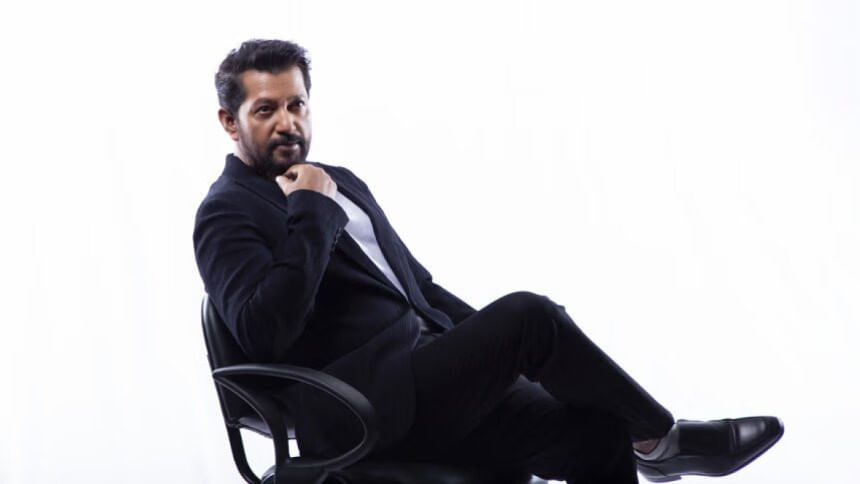‘If I weren’t an actor, I’d still be a journalist’

In the 1990s, Mahfuz Ahmed emerged as one of the most recognisable faces on Bangladeshi television. His breakthrough role in the landmark drama "Kothao Keu Nei" made him a household name and set the course for a career that would span decades, earn him multiple National Film Awards, and secure his reputation as one of the country's most enduring screen icons.I have known Mahfuz for nearly twenty years — as a journalist, I've observed him both on and off the set, in Pubail, Munshiganj, and Uttara...
In the 1990s, Mahfuz Ahmed emerged as one of the most recognisable faces on Bangladeshi television. His breakthrough role in the landmark drama "Kothao Keu Nei" made him a household name and set the course for a career that would span decades, earn him multiple National Film Awards, and secure his reputation as one of the country's most enduring screen icons.
I have known Mahfuz for nearly twenty years — as a journalist, I've observed him both on and off the set, in Pubail, Munshiganj, and Uttara. On October 23, as he celebrates another birthday, I find myself revisiting those memories, tracing the journey of a man who continues to define quiet integrity in a restless industry.
Years ago, Mahfuz once called me out of the blue. "Come by my Banani office next week," he said. "No interviews — just a chat."
When I arrived, he greeted me with his characteristic warmth and a long hug. We sat down, and before long, the conversation drifted to his early years. "I really miss my days in journalism," he confessed with a nostalgic smile. "Whenever I see you journalists, it reminds me of those times. Life took me elsewhere, but journalism was my first love."
I asked him what he would have become had acting not intervened. He laughed. "A journalist, of course. I began my journalism career while studying at the University of Dhaka. I loved that life — it was vibrant, unpredictable, and full of meaning."
As the conversation deepened, I asked if there had ever been someone special in those years. He paused for a moment, then smiled. "I was in college in Comilla. I used to tutor a girl. One day, her family moved away — I saw them loading their things into a car. That was the last time I saw her. We liked each other quietly, but life went on."
Over the years, Mahfuz's public persona has been defined by his gravitas on screen. But in conversation, he reveals a gentle simplicity that anchors his success. "Like most people, I come from a very ordinary background," he said. "My father was a schoolteacher. I grew up in the suburbs, studied in Comilla, then at Dhaka University."
When I asked if he still visits his village, he smiled. "Of course. I'm deeply connected to it. I go back whenever I can. Meeting the people there gives me peace."
"What do you miss most about village life?" I asked.
He thought for a moment. "The wind," he said finally.
Seeing my puzzled look, he explained: "At night, there used to be this breeze — some called it Pubali batash, others Baula batash. You don't feel that kind of air anymore. I miss it."
The memories flowed easily, often with laughter. "Did you ever sneak out to watch movies?" I asked.
"Many times!" he said, laughing. "Back in Lakshmipur, I'd lock the door and slip out at night to catch a film. I'd return pretending to be asleep, but my father always knew. He'd scold me — but it was worth it."
Then his tone shifted. "Being a good human being — that's what matters most," he said quietly. "We only live once. But people remember kindness. If, after I'm gone, people say, 'Mahfuz Ahmed was a good man,' that will be enough for me."
Dinner was served before I realised how late it had become. "Come, let's eat," he said, smiling. We talked over food, and when it was time to go, he insisted on dropping me home himself.
On that quiet drive through Dhaka's night, I thought about the man I'd just spoken to — an actor admired for his craft, but remembered, perhaps more importantly, for his humility. Beneath the fame and lights, Mahfuz Ahmed remains what he's always been: a man who listens, remembers, and values what truly lasts.